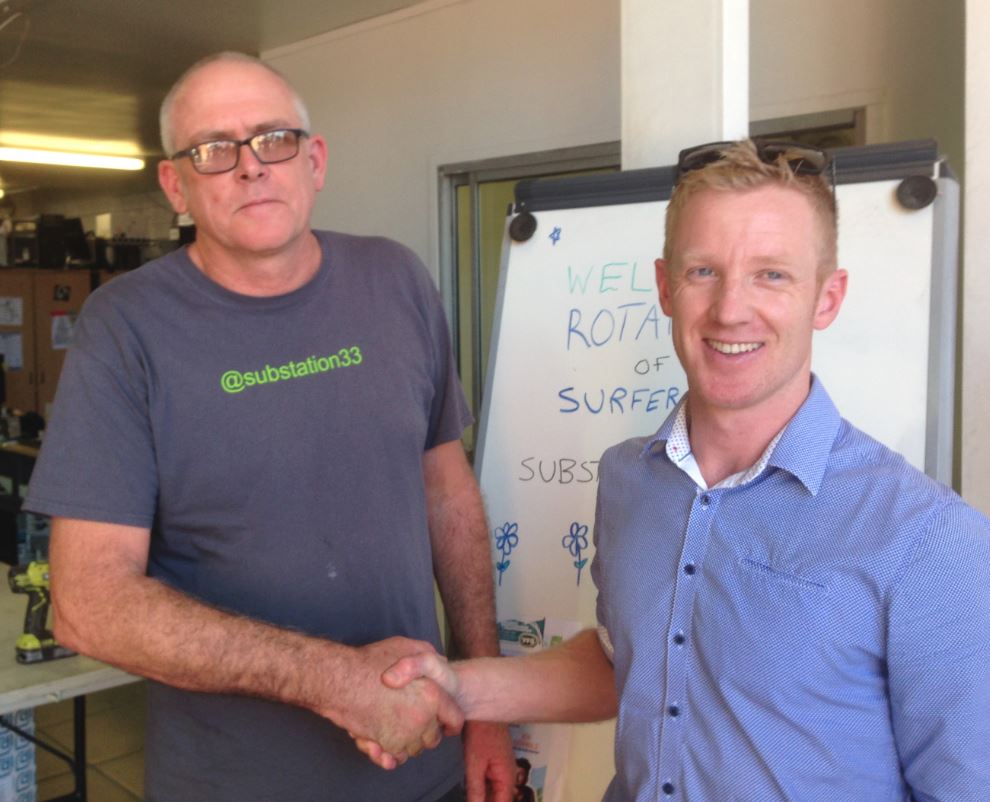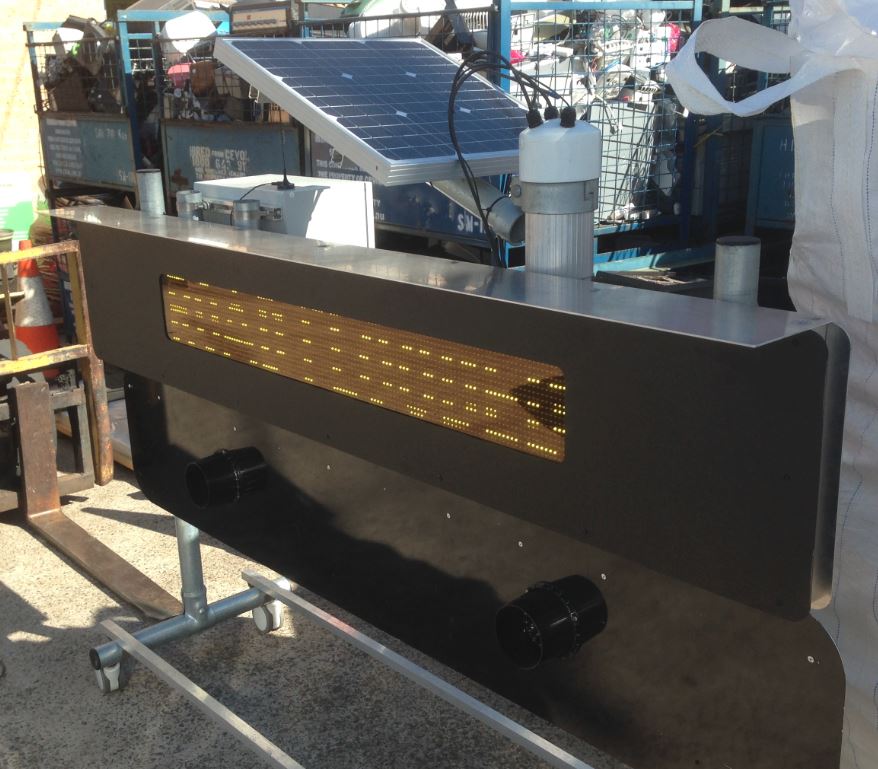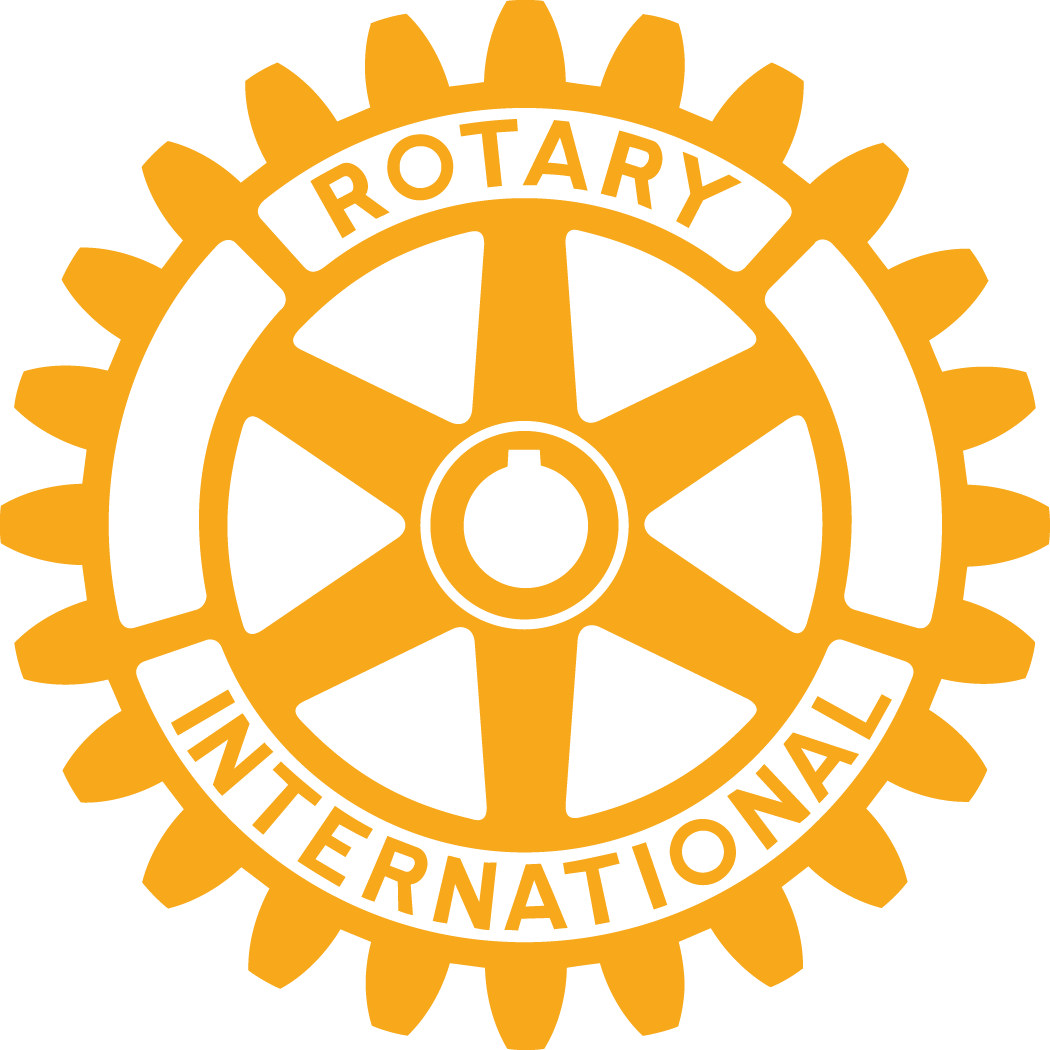Substation 33: tackling Youth Unemployment that works
The concept would appear to be deceptively simple:
- get the kids engaged and motivated,
- get them to do something truly useful,
- get them to work in a team,
- involve them in currently popular stuff like 'Recycling', '3D Printing'
- ensure they conform to some straight rules of behaviour and personal hygiene
 Well, during our visit to Substation 33 last Wednesday the owners Tony Sharpe (see picture, with President Simon Brook) and Simon Schmidke (he was our Guest Speaker in March 2017) outlined their philosophy: this is exactly what they do to help the local unemployed youth. At the other end of the scale, they provide work experience to budding electronics students from Griffith University. With one very important addition: they are running it as a successful business! Instead of simply collecting 'Work for the Dole' payments from the Government, their company produces products which are innovative, save the environment and - most importantly, create enthusiasm.
Well, during our visit to Substation 33 last Wednesday the owners Tony Sharpe (see picture, with President Simon Brook) and Simon Schmidke (he was our Guest Speaker in March 2017) outlined their philosophy: this is exactly what they do to help the local unemployed youth. At the other end of the scale, they provide work experience to budding electronics students from Griffith University. With one very important addition: they are running it as a successful business! Instead of simply collecting 'Work for the Dole' payments from the Government, their company produces products which are innovative, save the environment and - most importantly, create enthusiasm. Back in March, Simon Schmidke outlined their 3D printer which they manufacture for the princely sum of $65.00 from recycled electronics components. But let's look at a "real" project: the company is manufacturing electronic 'Road Flooded' signs, which automatically
switch on when - you guessed it - the road is flooding. [Yes, it says 'Road Flooded'. It's just that your Editor's iPhone is not fast enough to catch it... ☺] The device uses Solar powered recycled electronics and laptop batteries to communicate  between the floating device in the creek and the sign. They can produce this sign for about $15,000 - Councils would spend that much just in labour and plant hire to install the old fashioned 'Two Flashing Lights' sign with a hard wired cable connection. Win-Win-Win across the board: Councils get inexpensive electronic sign boards which ultimately will not only connect to their information systems, possibly even Google Maps but will save lives and drama with Emergency Rescue teams, toxic laptop batteries don't go into landfill.
between the floating device in the creek and the sign. They can produce this sign for about $15,000 - Councils would spend that much just in labour and plant hire to install the old fashioned 'Two Flashing Lights' sign with a hard wired cable connection. Win-Win-Win across the board: Councils get inexpensive electronic sign boards which ultimately will not only connect to their information systems, possibly even Google Maps but will save lives and drama with Emergency Rescue teams, toxic laptop batteries don't go into landfill.
 between the floating device in the creek and the sign. They can produce this sign for about $15,000 - Councils would spend that much just in labour and plant hire to install the old fashioned 'Two Flashing Lights' sign with a hard wired cable connection. Win-Win-Win across the board: Councils get inexpensive electronic sign boards which ultimately will not only connect to their information systems, possibly even Google Maps but will save lives and drama with Emergency Rescue teams, toxic laptop batteries don't go into landfill.
between the floating device in the creek and the sign. They can produce this sign for about $15,000 - Councils would spend that much just in labour and plant hire to install the old fashioned 'Two Flashing Lights' sign with a hard wired cable connection. Win-Win-Win across the board: Councils get inexpensive electronic sign boards which ultimately will not only connect to their information systems, possibly even Google Maps but will save lives and drama with Emergency Rescue teams, toxic laptop batteries don't go into landfill.This sign as well as the 3D printer were developed in-house in their 'Innovation Hub'. They also sell their stuff on e-Bay, the recycled parts are neatly separated into their various base components which are again sold on.
[I checked the current Budget Papers for 'Jobseeker Income Support' - the way I read it, it's about $10,458,000,000 for the current year. Sort of brings a tear to your eye, doesn't it? Ed.]

